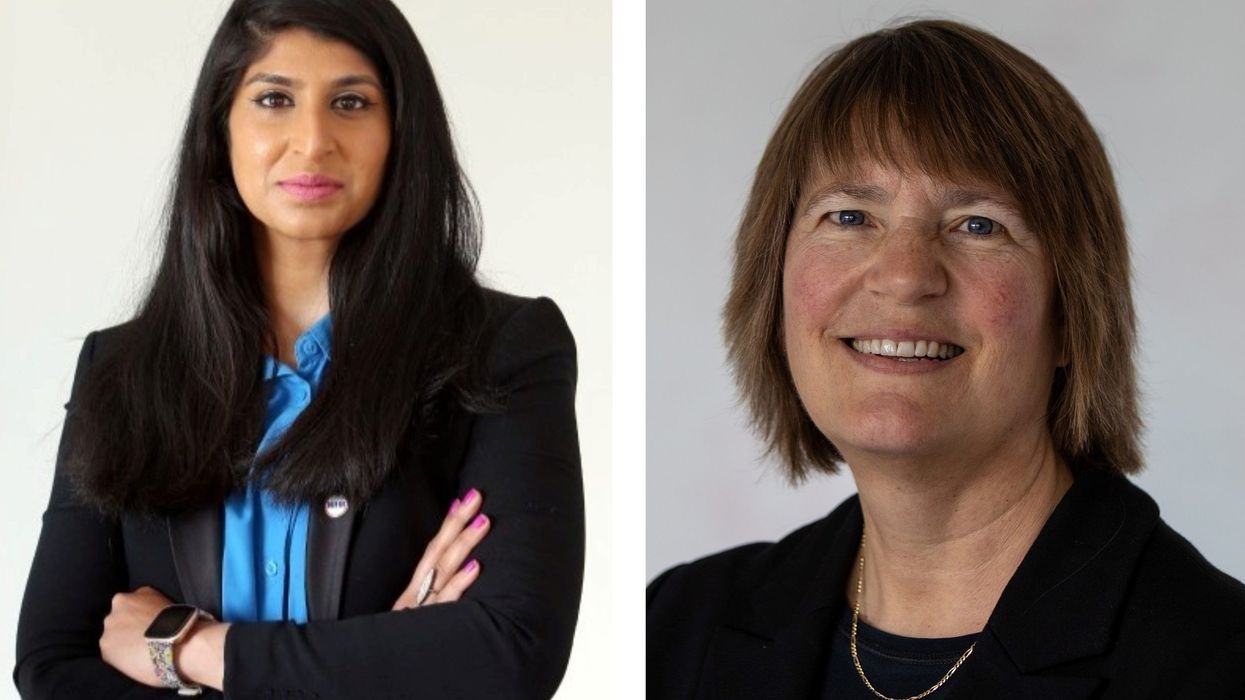Alzheimer’s Research UK has today announced that Biotech clinical development leader and former UK Vaccines Taskforce member Divya Chadha Manek OBE and former BBC executive Amanda Farnsworth have joined its Board of Trustees.
In their voluntary roles they will provide strategic leadership, governance, and insight into the charity’s running, and they will meet with the rest of the 12-strong Board five times a year.
They both bring a wealth of skills and experience to the UK’s leading dementia research charity as it goes through a crucial phase in its 30-year history. The need for investment in dementia research has never been more urgent and the charity is overcoming huge challenges caused by the COVID-19 pandemic to continue to make breakthroughs possible.
Divya Chadha Manek is currently Senior Vice President, Clinical Development at Eyebio, an ophthalmology biotech company. In this role, Divya is responsible for the company’s clinical development strategy and execution.
Prior to this, Divya held various roles at the National Institute for Health Research (NIHR) having joined in 2007. Most recently, she served as the Clinical Research Network’s Director of Business Development and Marketing, leading a team responsible for increasing investment into UK health and social care research from both non-commercial and commercial research sponsors.
In 2020, Divya was seconded to the UK Vaccines Taskforce (VTF), which was set up in response to the COVID-19 pandemic to lead the UK’s search for a safe and effective vaccine. She was responsible for supporting global pharmaceutical companies to rapidly generate the evidence required for marketing authorisation of COVID-19 vaccines and played a pivotal role in conceptualising and developing the NHS Vaccine Research Registry.
Divya holds a degree in Psychology from Royal Holloway and following this, was awarded an India academic scholarship to study a Masters in Clinical Research at University of Birmingham.
Divya said, “One of the greatest challenges we face as a society is dementia. Having started my career in clinical research, recruiting people with dementia and their families into studies, I have had first-hand experience of the devastation the condition causes families. Research is the way to overcome this challenge. I am passionate about getting new treatments to people faster through innovative research. Alzheimer’s Research UK is at the forefront of advancing science in dementia, and I'm delighted to be able to bring my skills and expertise to help guide that effort.”
Amanda Farnsworth, who has also joined the charity’s Board of Trustees, has held some of the most high-profile leadership roles in the BBC, including Editor of the TV One and Six O Clock News, Deputy Editor of Newsnight and Bureau Chief in Washington DC.
As Project Executive for London 2012 she was involved in developing some of the BBC’s key external partnerships around the London 2012 Olympics, including with The London Organising Committee and the London Mayor’s office. She sat on the BBC’s 2012 Steering Group, helping to formulate the BBC's vision, editorial strategy and plans to cover all the major 2012 events including the Olympic Torch Relay, the Cultural Olympiad, and the Olympic Games.
Amanda’s last job at the BBC was as Head of Visual and Data Journalism, bringing together journalists, designers, and developers to produce high impact, highly visual and personalised news across all domestic and global outlets on TV, social media and the web.
Amanda said, "My family has been touched by dementia as have so many in this country and across the world. Both my parents volunteered to donate their brains to dementia research, and I too wanted to contribute to the cause of finding treatments and ultimately a cure for dementia. I’m extremely proud to have become a Trustee at Alzheimer’s Research UK.”




